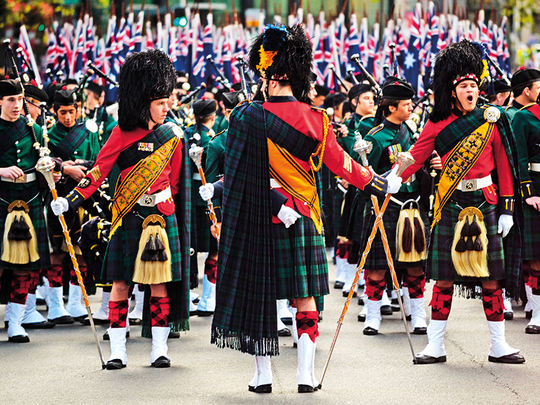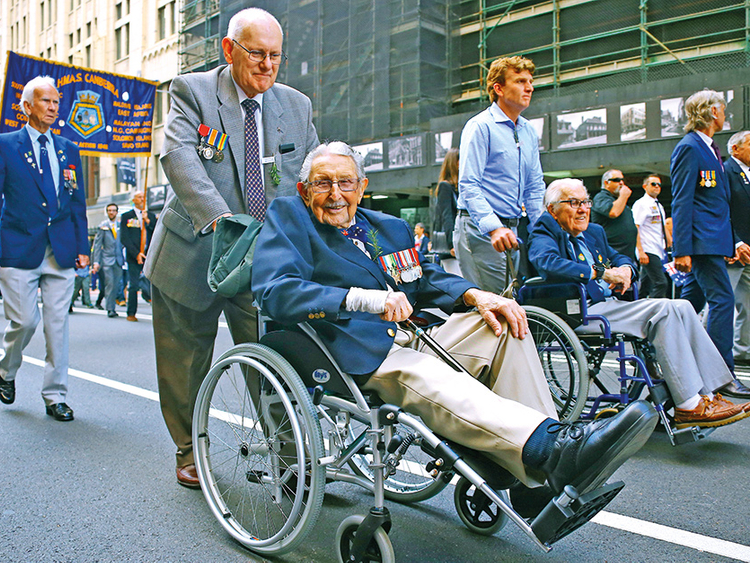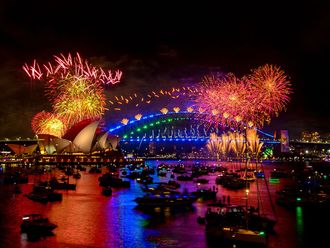
Sydney: Thousands of Australians and New Zealanders, many braving heavy rain, turned out Tuesday to mark the Gallipoli landing and to pay tribute to soldiers in current conflict zones in moving ceremonies.
Ceremonies are held annually on the April 25 anniversary of the ill-fated 1915 landing of the Australian and New Zealand Army Corps in modern-day Turkey during the First World War, known as Anzac Day.
More than 10,000 New Zealand and Australian servicemen died in the failed eight-month campaign, and Gallipoli became a defining symbol of courage and comradeship for the two countries.
Dawn services also acknowledged the contributions of troops currently serving in the Middle East, as Prime Minister Malcolm Turnbull visited camps in Afghanistan and Iraq.
“Like your forebears, 100 years ago, the Anzacs of the First World War, you are here in the Middle East as the Anzacs were,” Turnbull told soldiers in Baghdad, Iraq.
“This time [it’s] the fight against terrorism and you’re on the front line here and I want to thank you ... for your service.”
The Australian leader also met with his Iraqi counterpart Haider al-Abadi and pledged an additional A$110 million (Dh303 million or US$83 million) in funding to combat the Daesh group.
In Afghanistan, he met with President Ashraf Gani, US Defence Secretary Jim Mattis and Australian personnel in Qargha outside Kabul.
There are some 270 Australian Defence Force personnel deployed in Afghanistan and another 780 in the Middle East including Iraq.
Forty-two Australians have died while on military service in Afghanistan and two in Iraq since 2002.
US Secretary of State Rex Tillerson paid tribute to the war dead in an Anzac Day message.
“We will not forget that by the time the American Expeditionary Forces were organised in 1917, the Anzac had already been fighting for over two years,” he said.
“The tenacity and sacrifice of your brave servicemen and women represent to this day the determination of the people of Australia and New Zealand to defend democracy and freedom.”
‘Lest we forget’
In Canberra, indigenous veterans — who had to fight to be recognised for their sacrifices — led the national march for the first time.
Drawing attention to the current batch of troops returning from Afghanistan and Iraq, Curtis McGrath spoke of how his friends fought to save him in 2012 after an explosion blew off his legs.
The Afghanistan veteran called for “a mighty dust-off” for returning service personnel, using a military term for emergency evacuation which stands for “dedicated unhesitating service to our fighting forces”.
“May we, as a nation, continue to provide those men and women who have served us with the care they need, dedicated, unhesitating service to our fighting forces, a mighty Australian ‘dust-off’. Lest we forget,” McGrath, now a Paralympian, told the Canberra dawn service.
Victoria Cross recipient Corporal Ben Roberts-Smith also called on Australians to support returning troops.
“We understand a great deal more now about what happens for our veterans when they make their transition back into civilian life,” he told the dawn service in Melbourne.
“It can be very tough on their mental, emotional and physical well being, on their relationships, kids, families and friends.”
In Wellington, Governor-General Patsy Reddy remembered that a century ago New Zealand experienced the most costly year in terms of lives as the Western Front campaign ground on.
“For the bereaved, an Anzac Day service was the nearest thing to a funeral that their loved ones would ever have,” she told a service attended by New Zealand Prime Minister Bill English.













